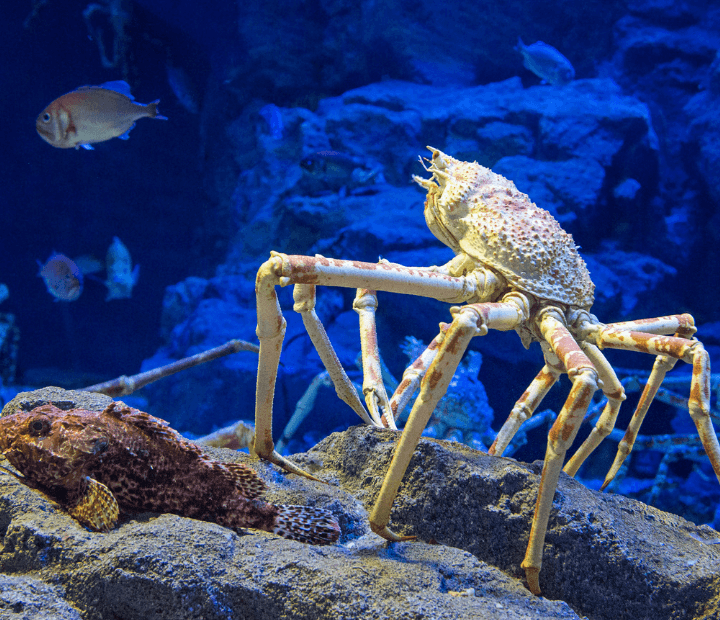When we think of marine life, images of colorful fish, majestic whales, and graceful sea turtles often come to mind. However, beneath the surface of the ocean lies a world just as diverse and captivating: the realm of marine invertebrates. From delicate sea stars to mysterious cephalopods, marine invertebrates play crucial roles in marine ecosystems and offer a fascinating glimpse into the wonders of underwater life. Let’s dive into the captivating world of marine invertebrates and explore some of the most intriguing creatures that inhabit our oceans.
- Sea Stars: With their distinctive radial symmetry and tube feet, sea stars are iconic inhabitants of coastal waters around the world. These remarkable creatures come in a variety of shapes, sizes, and colors, ranging from the familiar five-armed starfish to the otherworldly basket stars with their intricate branching arms. Sea stars are voracious predators, using their tube feet to pry open shellfish and their stomachs to digest prey outside their bodies. Despite their seemingly simple appearance, sea stars exhibit complex behaviors and ecological roles, making them a fascinating subject of study for scientists and aquarium enthusiasts alike.
- Coral Reefs: Coral reefs are among the most diverse and productive ecosystems on Earth, providing habitat for a vast array of marine invertebrates. Corals themselves are tiny animals known as polyps, which secrete calcium carbonate skeletons that form the structure of coral reefs. In addition to corals, reef ecosystems are home to a diverse community of invertebrates, including colorful reef fish, spiny sea urchins, and delicate sea anemones. These invertebrates play essential roles in reef ecology, from providing food and shelter for other organisms to contributing to the growth and resilience of coral reefs.
- Cephalopods: Cephalopods are a group of highly intelligent and adaptable marine invertebrates that include octopuses, squid, and cuttlefish. These fascinating creatures possess sophisticated nervous systems, complex behaviors, and remarkable camouflage abilities. Octopuses, in particular, are known for their ability to change color and texture to blend in with their surroundings, making them masters of disguise in the underwater world. Cephalopods are voracious predators, using their powerful beaks and tentacles to capture prey and navigate their ocean habitats with agility and precision.
- Jellyfish: With their gelatinous bodies and trailing tentacles, jellyfish are both mesmerizing and mysterious creatures of the ocean. Despite their simple anatomy, jellyfish are highly efficient predators, using their stinging tentacles to capture plankton and small fish. Some species of jellyfish are bioluminescent, emitting light through specialized cells called photophores, while others are capable of delivering potent venomous stings to their prey. Although jellyfish are often associated with stinging encounters and beach closures, they are an integral part of marine ecosystems, serving as food for many marine predators and contributing to the cycling of nutrients in the ocean.
- Crustaceans: Crustaceans are a diverse group of marine invertebrates that includes crabs, lobsters, shrimp, and barnacles. These creatures exhibit a wide range of shapes, sizes, and adaptations, from the armored exoskeletons of crabs to the delicate filter-feeding appendages of barnacles. Crustaceans play important ecological roles as scavengers, predators, and filter feeders, contributing to the health and balance of marine ecosystems. Many species of crustaceans are also commercially valuable, supporting fisheries around the world and providing a source of income and sustenance for coastal communities.
In conclusion, marine invertebrates are an integral and fascinating part of our ocean ecosystems, contributing to biodiversity, ecological resilience, and the beauty of the underwater world. By exploring the diversity and complexity of marine invertebrates, we gain a deeper appreciation for the wonders of ocean life and the importance of conserving and protecting these fragile ecosystems for future generations to enjoy.
